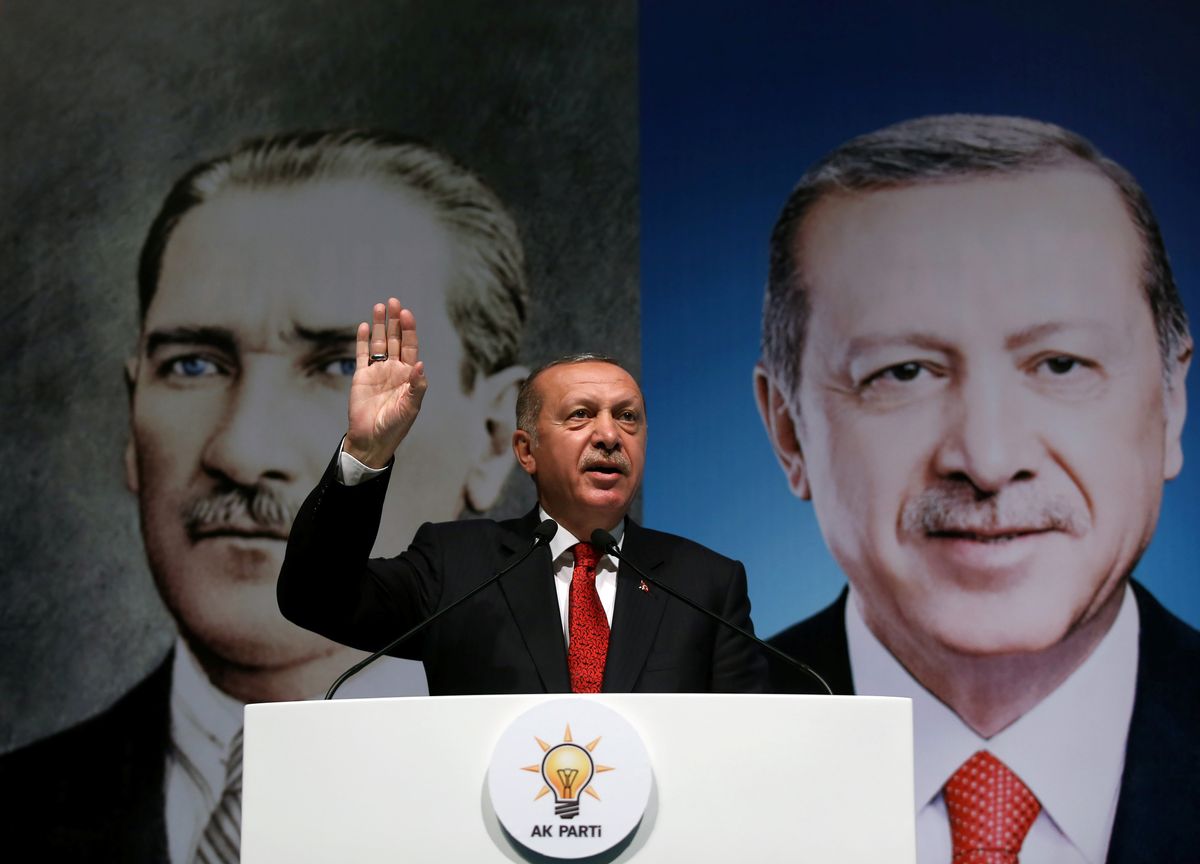Last Friday, Turkish President Recep Tayyip Erdogan published a defiant Op-Ed in the New York Times, warning the Trump administration not to continue pressuring his government to release an American pastor jailed in Turkey.
Trump, unimpressed, slapped fresh tariffs on Turkey that helped push the country’s currency, the lira, down nearly 20 percent against the US dollar. In the past few days, the bleeding has only continued – with the lira touching historic lows as investors head for the exits in the once booming economy. Even after stabilizing a bit this morning, the currency has still shed a quarter of its value this month.
But troubled relations with the US aren’t the main reason for Erdogan’s economic problems. Nor are the “economic terrorists,” international conspirators, or social media opponents that Erdogan has lashed out at in recent days.
Trump’s action only exacerbated a crisis that is largely the result of Erdogan’s own policies.
For years, Turkey’s economic growth has depended on foreign creditors who have lent money to his country’s government, banks, and businesses. That growth, in turn, helped to underpin Erdogan’s political popularity.But as a decade long boom subsided, the effects of Erdogan’s politically-motivated policy of pumping loads of cash through the economy – while dismissing inflation as a conspiracy rather than a consequence – began to spook those creditors, making Turkey’s economy increasingly fragile.
Brushing off the advice of his technocrat advisors and appointing his thinly-qualified son-in-law to run much of the economy worsened matters still. As investors pull their money, the lira is plummeting in value, making it increasingly hard for domestic companies and banks to pay back foreign creditors. Now, tipped further into the abyss by the dust-up with Trump, a full blown economic crisis looms and yet Erdogan is digging in his heels.
So where does he go from here? When it comes to the diplomatic spat with the US, he can probably find an artful way to fold. Defiant though he may be, Erdogan has gone from lion to lamb before. Back in 2015, he seemed ready to face down Moscow after Turkish forces shot down a Russian jet over the Turkish-Syrian border. But after a scolding from NATO and especially some economic pressure from Vladimir Putin, he issued one of the more abject apologies that we’ve seen from one leader to another.
The bigger question is whether the increasingly isolated and authoritarian Erdogan can back away from an economic policy built on nationalist pluck and paranoid conspiracy theories. If not, then irrespective of what happens between Erdogan and Trump, Turkey’s recent troubles are only a prelude to greater pain ahead.



















